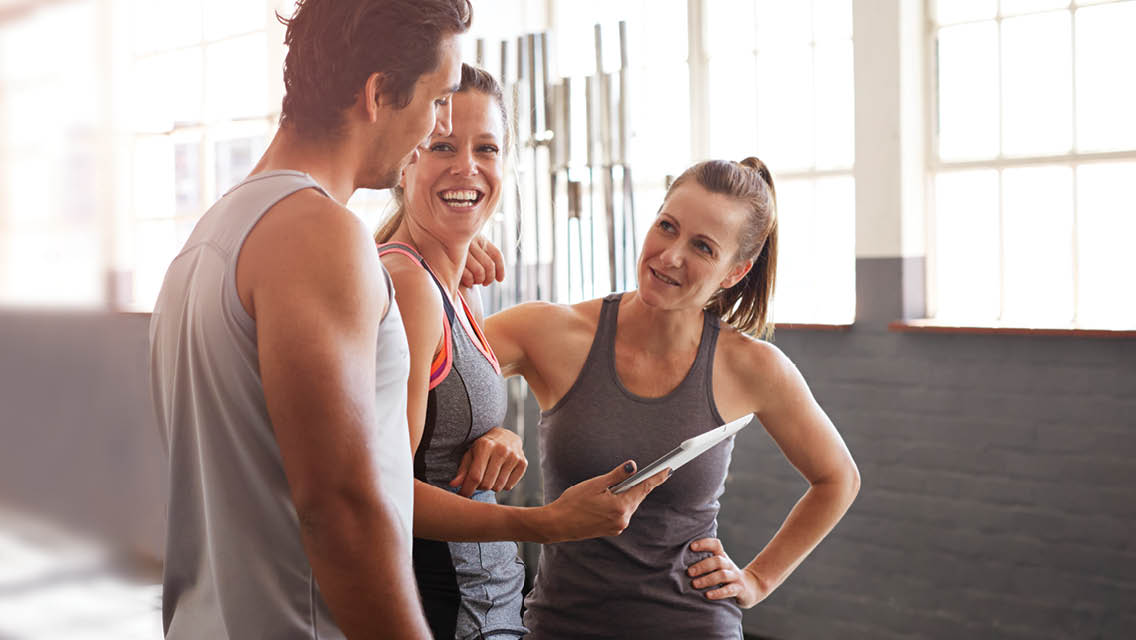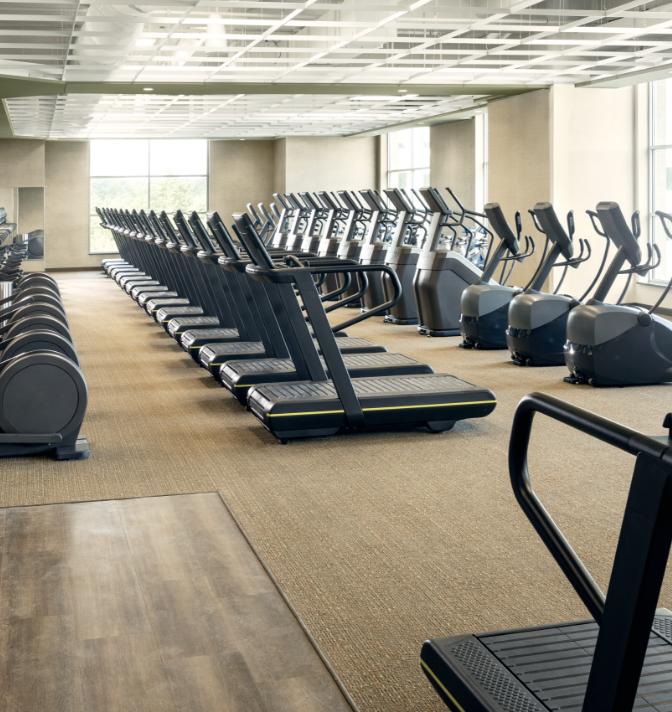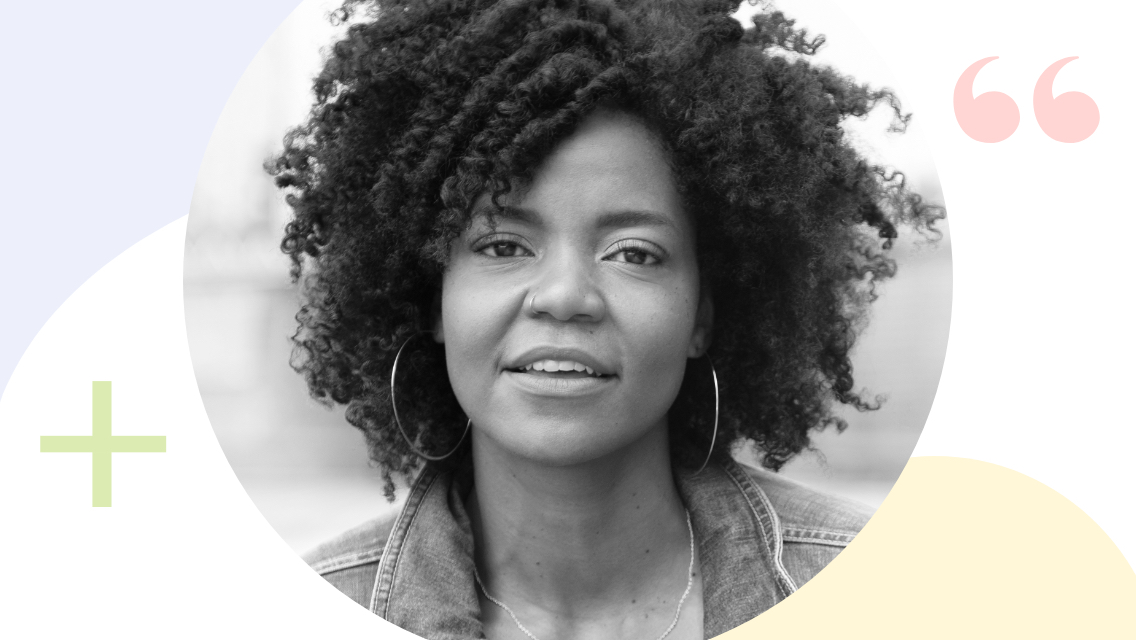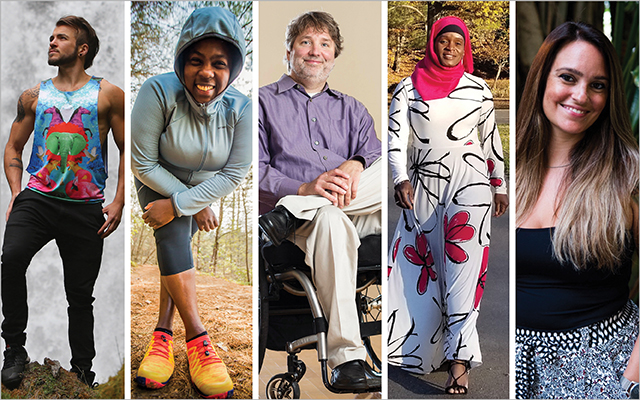In recent years, many organizations have engaged in a greater social reckoning regarding race, gender, body size, trauma, and other qualities or experiences that can affect one’s sense of belonging. Life Time is no exception: In 2020, the company created the Inclusion Council to identify opportunities to empower marginalized communities while ensuring its health clubs would be a place for everybody and every body.
Commitments like these may be part of the reason you’re sensing a change in unspoken social rules. Making space for everyone requires awareness and intentionality. It means removing our blinders and paying attention to how we impact an environment — and how it impacts us.
That can be hard in health clubs and gyms, which have historically been spaces to focus on oneself — one’s own needs, health, and fitness journey. I’ve heard from some people that this shift from a singular focus to community awareness is too much for them: They feel that they not only have to monitor their own workouts but also manage how other people feel.
In other words, they think making space for others means losing space for themselves. It’s an unfortunate — and, in my view, erroneous — perspective that is exacerbated by the idea of etiquette itself.
“Etiquette” refers to a set of rules intended to be followed in “polite society,” usually with the objective of uniting people around a shared moral code. These rules are, by definition, exclusionary. If you know and follow the rules, you might be allowed among the elite. If you don’t, you’re not. The cost of inclusion in such a world is high because etiquette has historically taken only a narrow view of whose comfort should be considered.
Making space for everyone requires awareness and intentionality. It means removing our blinders and paying attention to how we impact an environment — and how it impacts us.
The goal of social-justice movements and the new social rules you’ve likely noticed is not to oppress or exclude. It’s to welcome everyone by more intentionally including those who have been excluded or marginalized.
So, I invite you to rethink how you pose your question. Rather than viewing my (or anyone’s) advice as rules of etiquette, it might be more useful to consider how certain behaviors might improve the experience for everyone.
Health clubs and gyms are public–private spaces. Yes, I pay a fee to enter and use the equipment and amenities, but that payment does not mean I’m the only one there who matters. There is room for you and me and everyone else to coexist — and thrive! — if we’re willing to respect each other.
With this perspective in mind, you might be interested in some of our past coverage of health-club best behaviors here. I’d bet that most of the tips won’t be a surprise. They truly boil down to one simple, timeless idea: Be cool.
Talking loudly on the phone, leaving sweat on a machine, and not putting away equipment — not cool. Bullying or belittling someone, intentionally calling them by their wrong name or pronouns, and making sexualized remarks — not cool. Offering unsolicited advice, making assumptions about people’s goals, commenting on their bodies or clothing, and recording them without permission — not cool.
Luckily, none of these harmful behaviors is required for improving your fitness, your sense of self, or your sense of community. I guarantee you can reach your goals without doing any of these uncool things.
What is cool? Wiping down an exercise machine or piece of equipment after using it to eliminate germs, and returning equipment where it belongs when you’re done.
Also cool: respecting other people’s space by leaving breathing room between bodies, and not talking to people who indicate they’re not interested in conversation or advice. (Lack of eye contact and headphones are two clues someone doesn’t want to be interrupted.)
Saying hello, goodbye, and thank you to the people who work at your club? Cool. Just to name a few.
For me, being cool means being mindful of how I show up — both for myself and others. Yes, it takes a little bit of extra energy to broaden my awareness beyond what I’m doing and what I’m gaining from my routine. But if working out has taught me anything, it’s that any new skill, practiced intentionally and consistently, can become second nature.
This article originally appeared as “What Are the New Rules of Gym Etiquette?” in the June 2023 issue of Experience Life.






This Post Has 4 Comments
I would ask that other guests refrain from using common marked walkways as their personal workout space. There is only one way to get from the stairs to the cycle studio, etc. When people use this space for lunges and farmer’s walks, it completely obstructs other members and creates a hazard for potential injury.
Respect + Courtesy + Smile will probably also improve your mood and workout experience. Thank you, Life Time, for promoting civility at the gym.
Right on target, totally agree. Appreciated.
Not cool is leaving used water bottles for the staff to pick up. Not cool is talking loudly in the sauna, not cool is being on the phone in the sauna or anywhere in the bathroom. Cool is being nice, period. Easy to do.